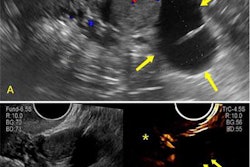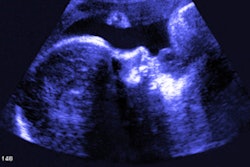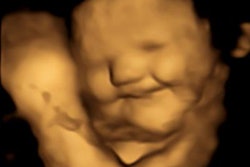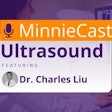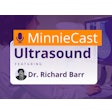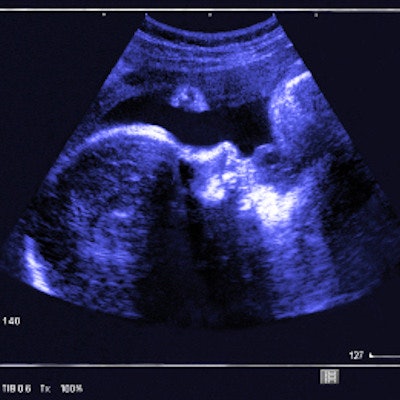
Artificial intelligence (AI)-based analysis of ultrasound images and videos can more accurately predict the gestational age of fetuses than conventional fetal biometry techniques, a study published January 4 in JAMA Network Open found.
A team led by Chace Lee from Google Health in Palo Alto, CA developed the models, which predicted gestational age in testing better than standard ultrasound fetal biometry-based measurements.
"Since our models are built on data collected during routine fetal ultrasonography examinations, they have the potential of being incorporated seamlessly into the routine clinical workflow," Lee and co-authors wrote.
Fetal ultrasonography estimates gestational age for fetuses. This is important for care provision and strategy throughout pregnancy, as well as identifying complications in fetal growth and development.
Fetal biometric measurements from ultrasound images are taken to help confirm gestational age and diagnose fetal growth disorders. Although these measurements are reproducible across different operators, previous research suggests increased variability in later stages of pregnancy. Factors such as fetal movement and positioning can make it harder for operators to accurately position the ultrasound probe.
Researchers have explored AI's potential in this area in recent years. Lee and colleagues wanted to find out the efficacy of three end-to-end AI models that leverage ultrasonography images and videos to estimate gestational age. These include the following: an image model using fetal ultrasound images captured by sonographers during biometry measurements, a video model using five to 10 seconds of video immediately before image capture (fly-to videos), and an ensemble model using both still images and fly-to videos.
The study authors collected and calculated data for a test set of 404 U.S. and Zambian women with an average age of 28.8 years at study enrollment. They found that all three models were superior to the performance of standard biometry measurement collection methods.
| Comparison of AI models with standard fetal biometry measurement collection for estimating gestational age | ||||
| Standard estimates | Image model | Video model | Ensemble model | |
| Average error (days) | -1.44 | -0.45 | -0.54 | -0.29 |
| Average absolute error (days) | 5.11 | 3.6 | 3.63 | 3.97 |
| Average absolute error difference versus standard fetal biometry average difference (days) | 1 (reference) | -1.51 | -1.48 | -1.13 |
Also, the researchers found that the ensemble model was superior to alternative formulas that measure gestational age in addition to the standard Hadlock method. These included the Intergrowth-21st and National Institute of Child Health and Human Development (NICHD) formulas. The ensemble model showed an average absolute error of 3.65 days, lower than the three alternative formulas.
In a joint email statement, Google product manager Akib Uddin and software engineer Ryan Gomes said they were surprised by the models having lower error for subgroups and that traditional biometry-based approaches are predisposed to higher error for subgroups.
"We also found a substantial increase in estimation accuracy when our artificial intelligence system used motion video acquired during the 10-second period before a sonographer captures single images of fetal biometry," they added.
The team suggested that the AI models could help in clinical workflows with sonographers being in high demand and thus suffering from workplace or overuse injuries from scanning requirements. The group also called for more studies to find out whether AI can reduce scanning time, assist sonographers, and minimize workplace injury in an adjunct position.
"Our AI models have the potential to empower trained operators to estimate gestational age with higher accuracy," the authors wrote.
Uddin and Gomes said the team is interested in exploring AI's impact on access to ultrasound during pregnancy, especially in low-resource settings. They added that Google is partnering with Northwestern Medicine to further develop and test the AI models to be more generalizable across different levels of experience and technologies.
"With more automated and accurate evaluations of maternal and fetal health risks, we hope to lower barriers and help people get timely care in the right settings," they said.
This study was partially funded by Google and the Bill and Melinda Gates Foundation.





